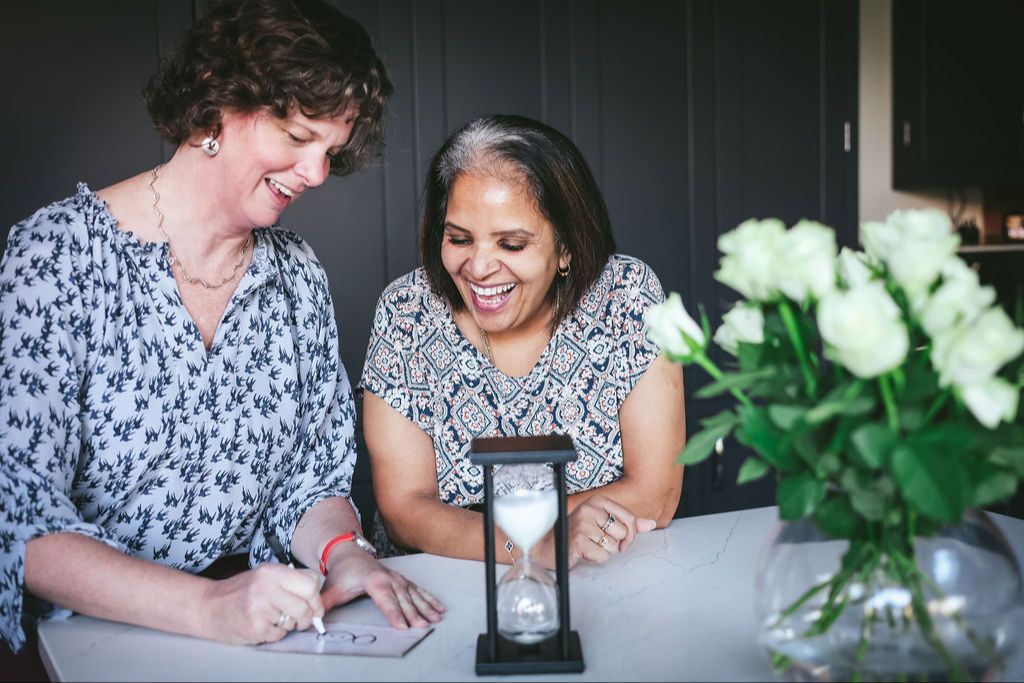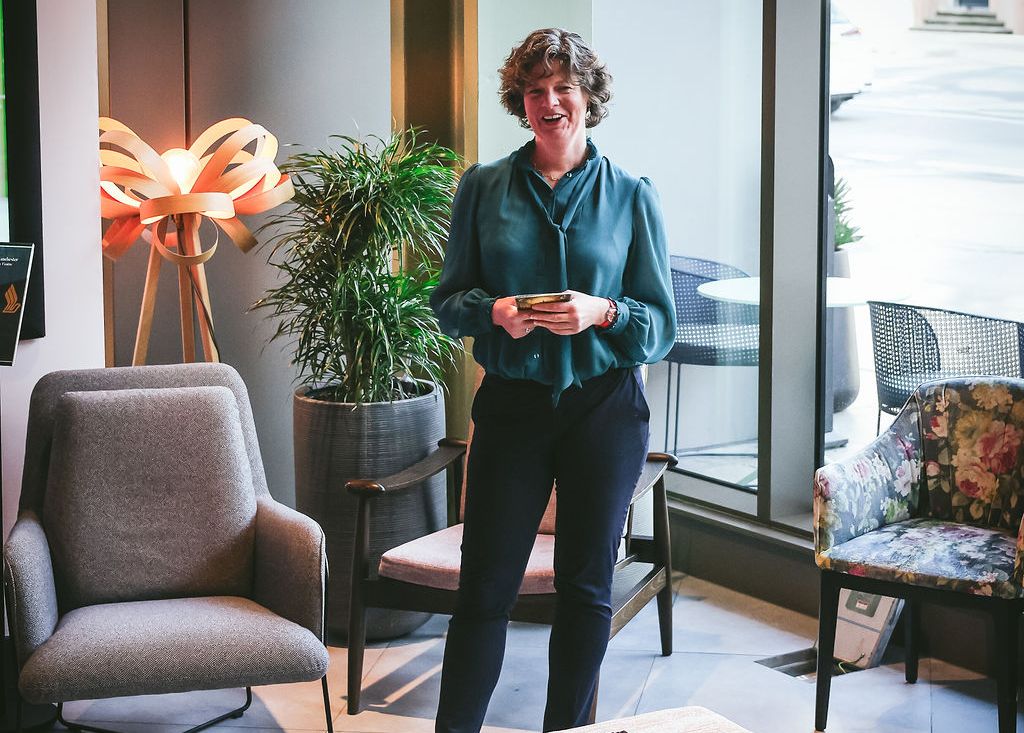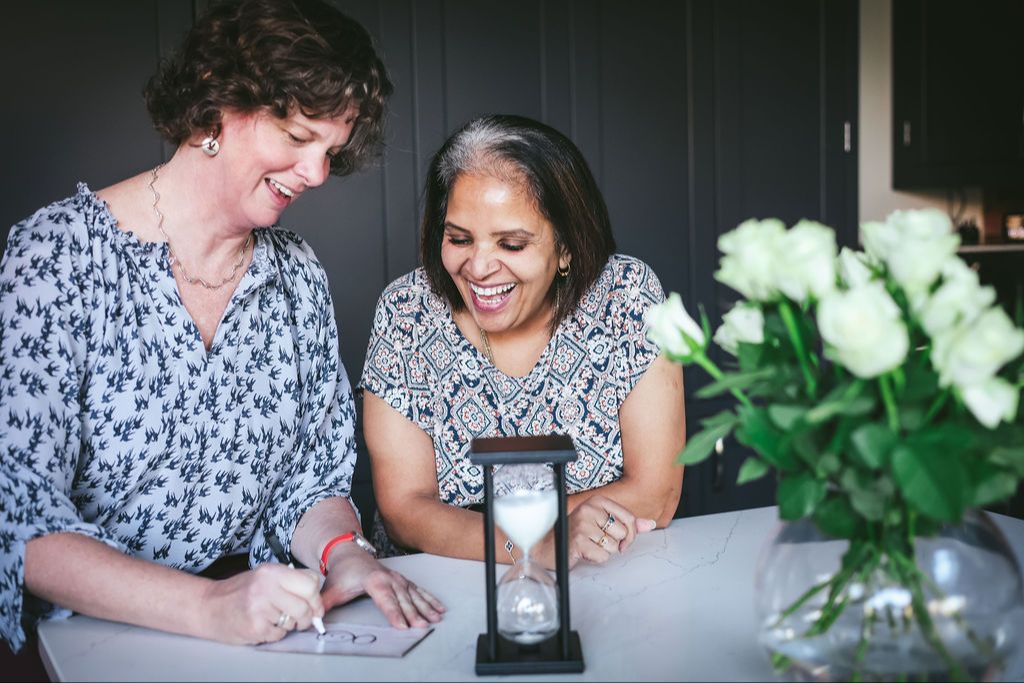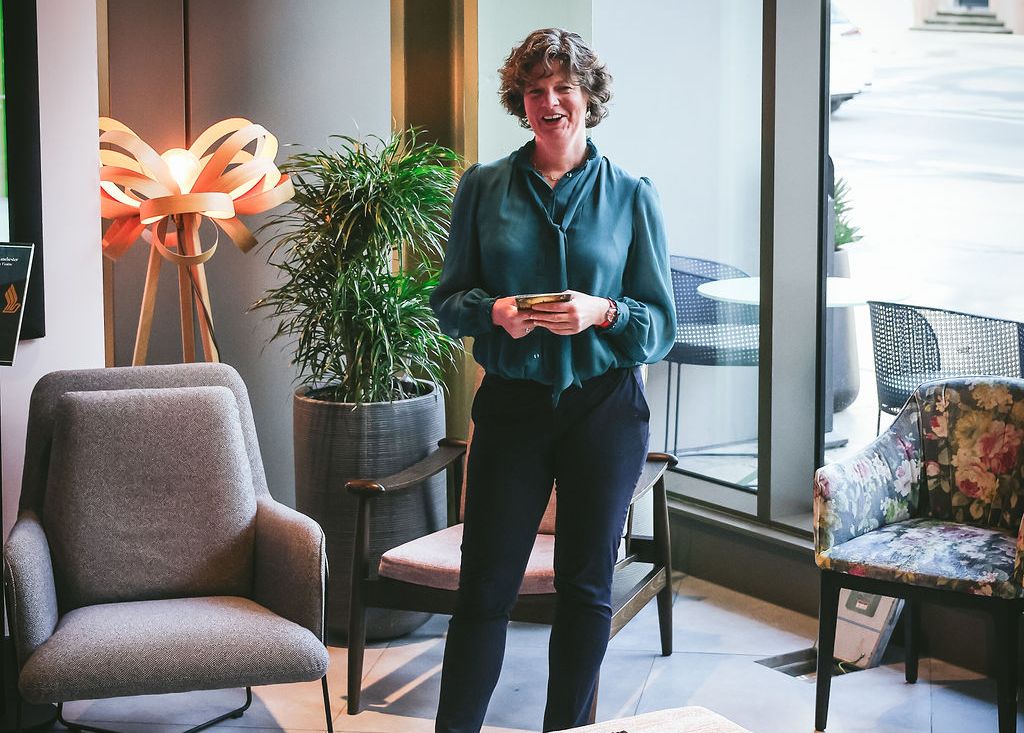"Tell It Like You're Talking to a Friend" - A Moment with Helen Fielding
Mar 26, 2025At the Cheltenham Literature Festival in October 2024, I found myself in a packed tent listening to Helen Fielding, the writer behind Bridget Jones. She was warm, funny, and sharp. But it was one line that stayed with me.
"I wrote for the women I stood beside."
Not from above. Not from behind a lectern. Shoulder to shoulder, speaking her own truth to her own generation.
Someone in the audience asked whether she could write for Gen Z today. She paused, smiled, and said no. Their world, their language, it's different. But she wasn't dismissive. She said: "They're brilliant. Witty. The way they tell stories through TikTok is so clever. They don't need me to write it for them. They should be writing for each other."
That landed.
I ran back home, grabbed a couple of Gabriel's books, and ran all the way back to the festival. The queue was already long. I was the very last person in it. When I finally reached her, I handed her a copy of The Adventures of Gabriel and thanked her for what she'd said about generations writing for each other. She smiled, took the book, and signed the other copy for Gabriel with words I won't forget:
"It's your story. Tell it like you're talking to a friend."
That line captures everything StoryQuest is about.
When children are told to write formally, most of them freeze. The blank page becomes a test. The pen becomes a way of getting things wrong. But when the instruction changes to "just tell me the story like you're talking to a friend," something shifts.
Helen Fielding was right that every generation has its own voice and its own truth to tell. Today's children are navigating a world that is genuinely different: pandemic disruption, social media pressure, the expectation to be polished and productive from a very young age. They need space to make sense of all of this in their own words, not through worksheets or essay prompts, but through stories that sound like them.
The Adventures of Gabriel is not polished by adult literary standards. It is exactly what a ten-year-old boy from Cheltenham creates when given space to tell stories his way. Monsters that represent real fears. Heroes who aren't always brave but figure it out anyway. Language that sounds like Gabriel, not like what adults think children should sound like. That is precisely why it works.
When we train teachers in StoryQuest methodology, we say: let children tell their stories like they're talking to a friend. When we work with reluctant writers, we say: forget formal writing, just tell me the story. When parents ask how to encourage creativity at home, we say: listen like a friend would, with curiosity, not correction.
That is when the real stories come out. The ones that matter. The ones that help children figure out who they are and what they are capable of.
"It's your story. Tell it like you're talking to a friend."
— Helen Fielding to Gabriel





